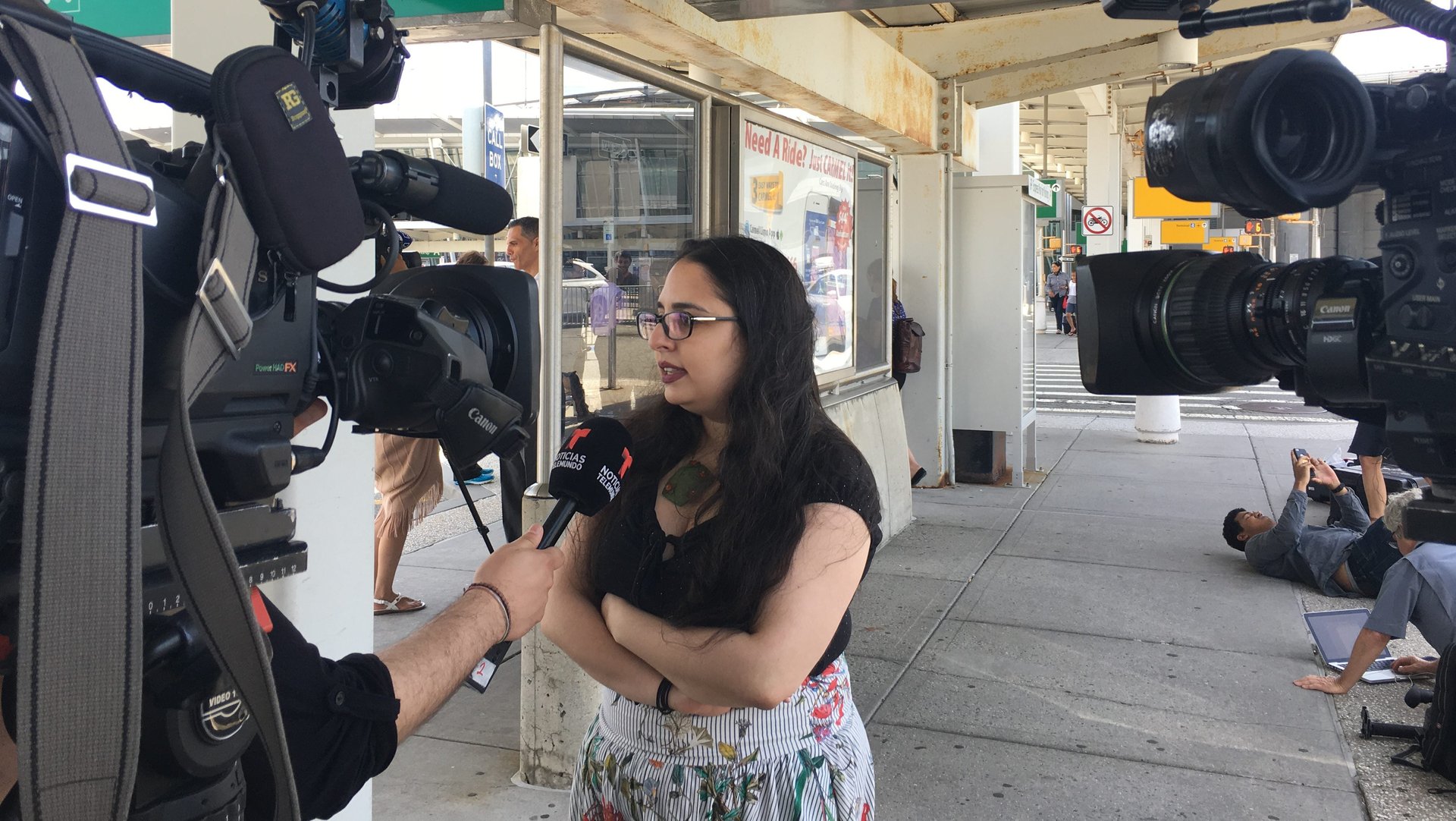The Trump travel ban is “redefining what a family is”
Rama Issa, a 29-year-old Syrian-American, is very close with her cousins, aunts, and uncles. She was planning on inviting relatives who live abroad to her wedding, planned for this fall. With the Trump administration’s travel restrictions on six majority-Muslim countries, her extended family would be prohibited from attending the ceremony. Under the new guidance from the government, they would be unable to prove the required “bona fide relationship” to Issa.


Rama Issa, a 29-year-old Syrian-American, is very close with her cousins, aunts, and uncles. She was planning on inviting relatives who live abroad to her wedding, planned for this fall. With the Trump administration’s travel restrictions on six majority-Muslim countries, her extended family would be prohibited from attending the ceremony. Under the new guidance from the government, they would be unable to prove the required “bona fide relationship” to Issa.
“This administration is redefining what a family is,” she said at John F. Kennedy International Airport (JFK) in New York today (June 28)—the day the administration’s new restrictions were to be implemented. Issa, executive director of the Arab-American Association of New York, said it is hard for her to come to terms with “the idea that a government can tell me who the members of my family should be.” She’s postponing the wedding.
On June 26—after a months-long legal battle after an initial version of the ban was rolled out suddenly in January—the US Supreme Court allowed the Trump administration to proceed with parts of its original order. The court stipulated that travelers who could prove a “bona fide” connection to the US now could enter the country. (The justices scheduled a hearing on the executive order’s constitutionality for October. )
This latest formulation is “massively problematic” said Camille Mackler, director of legal initiatives at the New York Immigration Coalition, since it gave the administration significant leeway.
The State Department has defined who it views as “bona fide”: parents, siblings, children, spouses, daughters- and sons-in-law. Aunts, uncles, cousins, grandparents, or fiancees do not count. Issa’s father, who lives in Damascus, would be able to attend her wedding. Her cousins, one of whom is a refugee in Austria, would be prohibited.
At JFK, the New York Immigration Coalition (NYIC), an advocacy group, gathered leaders like Issa to speak to the press. The group does not anticipate the same level of chaos at airports as when the ban was first introduced. Two reasons: the Supreme Court’s restrictions, and the fact that the ban applies to visa applicants—not those who already have been granted passage from abroad.
However, Mackler said advocates do not trust that the administration will act “in good faith,” and were preparing to help travelers who may be stranded. NYIC said in a statement it expects federal agencies to “struggle to define what a ‘bona fide relationship’ means.”
Issa, who came to the US when she was 15, said her grandparents raised her. They are in the country, but had they still been in Syria, she would not be able to invite them to her wedding—something she finds unfathomable. “Your grandparents are your ancestors, they pass on the bloodline to you, they define who you are,” she said.
“The idea that someone can define family to just [the] nuclear—your parents, your siblings—is pretty outrageous to me, because I was raised by my grandparents, because my cousins are like brothers to me.” She said that in the Arab community, the idea of separating relatives into “nuclear” and “extended” families is a “foreign concept.”
Issa says she grew up in a household regularly filled with up to 40 relatives. In Syria, her mother lived next door to her in-laws, and her cousins. “Family is everyone that is blood-related to you,” she says. “We don’t leave family behind.”